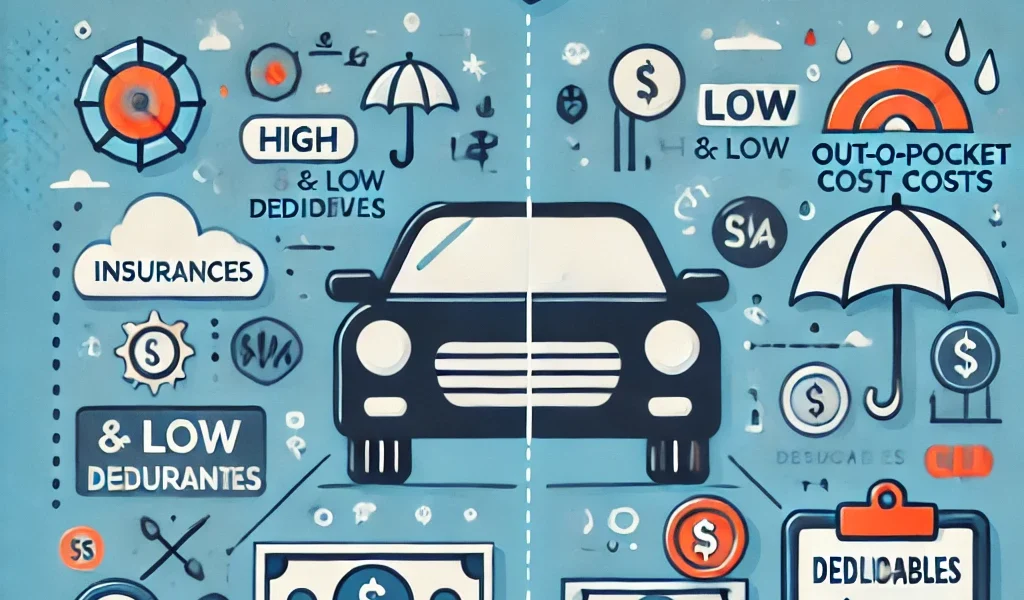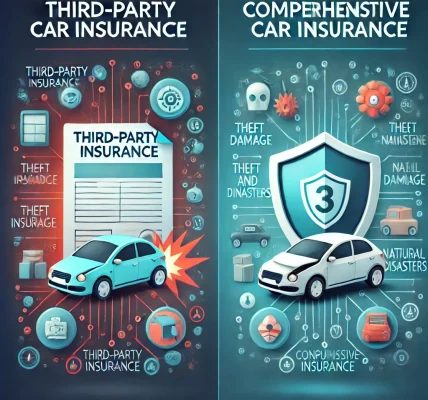Car insurance is an essential financial safety net that helps cover the costs of accidents, damages, and unforeseen events. One crucial component of car insurance policies that many policyholders often overlook is the deductible. Understanding how deductibles work can help you make informed decisions, optimize your policy, and manage costs effectively. This guide explores everything you need to know about car insurance deductibles, including their types, benefits, and how to choose the right one for your needs.
What is a Car Insurance Deductible?
A car insurance deductible is the amount you agree to pay out of pocket before your insurance company covers the remaining costs of a claim. It applies to various types of coverage, such as collision and comprehensive insurance. For example, if your deductible is $500 and the repair cost is $2,000, you will pay $500, and your insurer will cover the remaining $1,500.
Types of Car Insurance Deductibles
1. Collision Deductible
- Applies when your vehicle is damaged in an accident involving another car or object.
- Common deductible amounts range from $250 to $1,000.
- Higher deductibles can lower your premium, but you must pay more out of pocket for repairs.
2. Comprehensive Deductible
- Covers non-collision damages such as theft, vandalism, fire, natural disasters, and falling objects.
- Deductibles for comprehensive coverage are usually similar to collision deductibles.
3. Uninsured/Underinsured Motorist Deductible
- Applies when an uninsured or underinsured driver causes damage to your vehicle.
- Some policies may offer a zero-deductible option, but premiums might be higher.
4. Personal Injury Protection (PIP) and Medical Payments Deductible
- Covers medical expenses for you and your passengers after an accident.
- Some policies have deductibles, while others do not.
How Deductibles Affect Car Insurance Premiums
Deductibles and premiums have an inverse relationship:
- Higher Deductible = Lower Premiums: Choosing a higher deductible reduces the insurer’s risk, resulting in lower monthly or annual premiums.
- Lower Deductible = Higher Premiums: A lower deductible means the insurer takes on more risk, increasing your premium.
Example:
| Deductible Amount | Monthly Premium |
|---|---|
| $250 | $120 |
| $500 | $90 |
| $1,000 | $70 |
Pros and Cons of High vs. Low Deductibles
High Deductible
✅ Lower monthly insurance costs
✅ Encourages careful driving
✅ Ideal for drivers who rarely file claims
❌ Higher out-of-pocket expenses after an accident
❌ May not be ideal for those with limited savings
Low Deductible
✅ Less financial strain when filing a claim
✅ Suitable for high-risk drivers prone to accidents
✅ Provides peace of mind
❌ Higher monthly insurance premiums
❌ Can be costly in the long run if no claims are made
How to Choose the Right Deductible
Consider the following factors when selecting a deductible:
- Your Financial Situation
- If you have savings to cover a higher deductible, opting for a higher amount can lower premiums.
- If you cannot afford a large out-of-pocket expense, choose a lower deductible for financial security.
- Driving History
- Safe drivers with minimal accident history may benefit from higher deductibles.
- If you frequently file claims, a lower deductible might be a better choice.
- Value of Your Car
- If you own an older vehicle with a low market value, a high deductible may not be worth it.
- For newer or expensive vehicles, comprehensive and collision coverage with a reasonable deductible is advisable.
- Risk Tolerance
- If you prefer predictability in your expenses, a lower deductible provides peace of mind.
- If you are comfortable with occasional higher costs, a higher deductible can save you money on premiums.
Can You Change Your Deductible?
Yes, policyholders can adjust their deductibles at any time, typically when renewing their policy. However, changing a deductible mid-policy may require approval from your insurer. If you decide to raise your deductible, ensure you have enough emergency funds to cover potential out-of-pocket costs.
Common Myths About Car Insurance Deductibles
1. “A Higher Deductible Always Saves You Money”
- While a higher deductible lowers premiums, it may not be cost-effective if you file frequent claims.
2. “I Must Pay a Deductible for Every Claim”
- Deductibles apply to collision and comprehensive claims but not necessarily to liability claims where another party is at fault.
3. “I Can Avoid Paying My Deductible If an Accident Isn’t My Fault”
- If the at-fault driver’s insurance covers the damage, you may not need to pay your deductible. However, in hit-and-run or uninsured motorist cases, you might still be responsible for it.
Ways to Save on Deductibles and Premiums
- Opt for Deductible Waivers
- Some insurers offer deductible waivers for certain circumstances, such as accidents caused by uninsured motorists.
- Bundle Your Insurance Policies
- Combining auto and home insurance can lead to discounts that help offset higher deductibles.
- Maintain a Good Driving Record
- Safe driving can earn discounts and even eligibility for accident forgiveness programs.
- Use No-Claim Bonus (NCB)
- If you have not made a claim for several years, insurers may offer discounts, allowing you to afford a lower deductible without raising premiums.
- Take Advantage of Discounts
- Some insurers offer lower deductibles for installing anti-theft devices or taking defensive driving courses.
Final Thoughts
Understanding car insurance deductibles is essential for making informed decisions about your policy. Whether you choose a high or low deductible, consider your financial situation, driving habits, and risk tolerance to find the best balance between affordability and coverage. By carefully evaluating your options, you can ensure that you have the right protection while keeping your insurance costs manageable.
Always compare insurance quotes and discuss deductible options with your insurer to determine the most cost-effective solution tailored to your needs.


